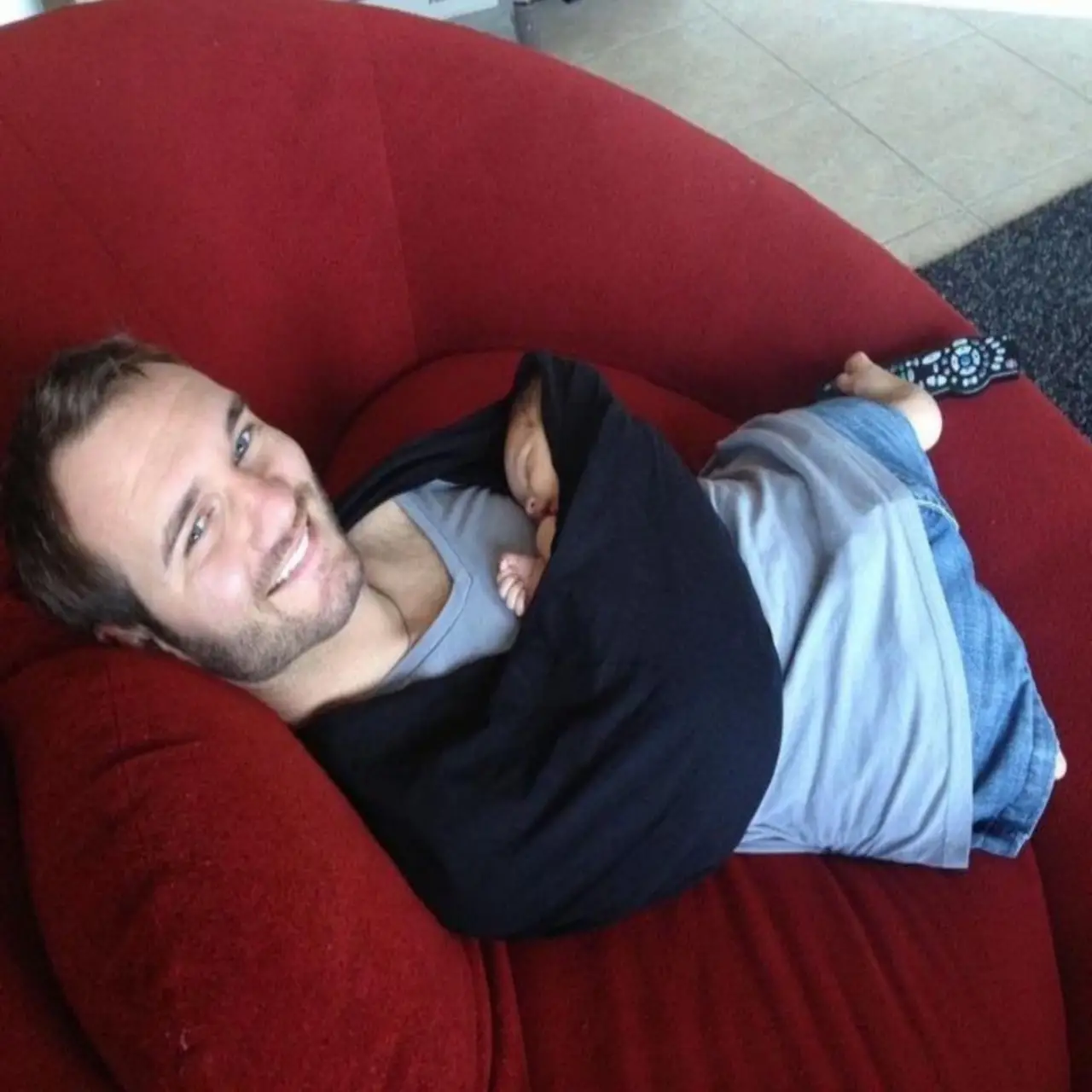In a world where physical differences often lead to societal barriers, the story of quadruple amputees becoming parents stands as a testament to human resilience and the power of love. This article explores the challenges, triumphs, and societal perceptions surrounding the journey of individuals with severe physical disabilities as they embark on the path of parenthood.
The Reality of Disability and Reproduction
Misconceptions and Truths
Many people incorrectly assume that physical disabilities automatically preclude individuals from having children. In reality, most disabilities do not affect reproductive capabilities. For quadruple amputees, the ability to conceive and bear children often remains intact, despite the absence of limbs.
Medical Perspectives
Reproductive specialists emphasize that the absence of limbs does not typically impact fertility. For male quadruple amputees, sperm production and sexual function can be normal if the reproductive organs are unaffected. Female quadruple amputees may face more challenges during pregnancy and childbirth, but these are not insurmountable with proper medical care.
Overcoming Stigma
Society’s misconceptions about disability and parenthood create significant hurdles. Many disabled individuals face discrimination and skepticism about their ability to raise children. However, numerous success stories prove that with determination and support, quadruple amputees can be loving and capable parents.
Navigating Pregnancy and Childbirth
Unique Challenges
Pregnancy for a quadruple amputee woman presents unique challenges. Balance issues, limited mobility, and the inability to use prosthetics during later stages of pregnancy require careful planning and support.
Specialized Care
Medical professionals specializing in high-risk pregnancies play a crucial role. They work closely with patients to develop tailored care plans, addressing both physical and emotional needs throughout the pregnancy.
Adaptive Strategies
Innovative solutions, such as customized maternity wear and adaptive equipment, help quadruple amputee mothers-to-be manage daily tasks and prepare for childbirth. Partner support and caregiver assistance become invaluable during this time.
Adapting to Parenthood
Creative Parenting Techniques
Quadruple amputee parents develop ingenious methods for childcare. From using voice-activated devices to customized baby carriers, they find ways to overcome physical limitations in caring for their infants.
Building a Support Network
A strong support system is crucial. Family members, friends, and professional caregivers often play significant roles in assisting with childcare tasks that may be challenging for quadruple amputee parents.
Embracing Technology
Advancements in assistive technology have opened new possibilities. Smart home devices, specialized prosthetics, and adaptive baby care products enable these parents to be more hands-on in their children’s lives.
Psychological and Emotional Aspects
Self-Perception and Confidence
Becoming a parent can significantly boost self-esteem for quadruple amputees. The ability to create and nurture life often reinforces a sense of normalcy and accomplishment.
Dealing with Societal Attitudes
Parents with disabilities frequently face unwarranted scrutiny and judgment. Developing resilience and educating others about their capabilities become ongoing tasks.
Impact on Children
Children of quadruple amputee
The Incredible Journey of Parenthood: Defying the Odds with Disability
In a world where societal norms often dictate the boundaries of what is deemed possible, the story of individuals like Nick Vujicic serves as a powerful testament to the resilience of the human spirit. As a man born without limbs, Vujicic’s journey has been one of triumph over adversity, shattering preconceived notions and inspiring countless others to embrace their dreams, regardless of the perceived limitations they may face.
The Pursuit of Happiness: Love, Marriage, and Family
Overcoming Societal Stigma
For many individuals with disabilities, the idea of finding love, getting married, and starting a family can seem like an unattainable dream. Societal stigma and misconceptions often create significant barriers, leading to a sense of isolation and a belief that their desires for intimacy and companionship are somehow less valid. However, the experiences of individuals like Nick Vujicic prove that these perceived limitations are nothing more than societal constructs that can be overcome with determination, self-acceptance, and a supportive partner.
Redefining Intimacy and Sexuality
One of the primary concerns faced by individuals with disabilities is the perceived inability to engage in a fulfilling intimate and sexual relationship. However, as experts in the field have highlighted, physical limitations do not inherently equate to an inability to experience and express love, intimacy, and sexuality. With open communication, creativity, and a willingness to adapt, individuals with disabilities can discover new and meaningful ways to connect with their partners, fostering deep emotional and physical connections.
The Triumph of Nick Vujicic
The story of Nick Vujicic serves as a powerful example of how individuals with disabilities can not only find love and companionship but also experience the joys of parenthood. Despite being born without limbs, Vujicic has defied the odds, marrying his wife Kanae and welcoming two children into the world. His journey demonstrates that the capacity for love, intimacy, and the ability to nurture a family is not defined by physical capabilities, but rather by the strength of one’s character, determination, and the support of a loving partner.
Conception and Pregnancy: Navigating the Challenges
Dispelling Myths and Misconceptions
For many individuals with disabilities, the prospect of conceiving and carrying a child can seem daunting, as they are often confronted with a myriad of myths and misconceptions. However, the medical community has consistently affirmed that, in the majority of cases, physical disabilities do not inherently impair the ability to reproduce. Advances in medical technology and the dedication of healthcare professionals have opened up new possibilities, empowering individuals with disabilities to embrace the joys of parenthood.
Addressing Unique Considerations
While individuals with disabilities may face unique challenges during the conception and pregnancy stages, these hurdles are not insurmountable. With proper medical care, specialized support, and a commitment to addressing specific needs, individuals with disabilities can navigate the journey of pregnancy and childbirth with confidence and success. From addressing physical limitations to ensuring the well-being of both the parent and the child, healthcare providers play a crucial role in facilitating this process and fostering positive outcomes.
The Resilience of the Human Spirit
The stories of individuals with disabilities who have successfully conceived and given birth to children serve as a testament to the resilience of the human spirit. These individuals have not only defied societal expectations but have also demonstrated an unwavering commitment to their dreams of starting a family. Their journeys inspire us to redefine our understanding of what is possible and to embrace the inherent worth and dignity of all human beings, regardless of their physical abilities.
Parenting with Disabilities: Adapting and Thriving
Overcoming Practical Challenges
Parenting with a disability presents a unique set of practical challenges, from managing daily caregiving tasks to ensuring the safety and well-being of the child. However, with creativity, adaptability, and a willingness to seek support, individuals with disabilities have proven that they can excel as nurturing and attentive parents. Through the use of assistive technologies, specialized equipment, and the involvement of a caring support network, parents with disabilities can overcome these practical obstacles and provide their children with a loving and enriching environment.
Navigating Societal Attitudes
One of the most significant hurdles faced by parents with disabilities is the persistence of societal attitudes and misconceptions. Often, individuals with disabilities are confronted with doubts and concerns about their ability to effectively care for their children, leading to stigma, discrimination, and a lack of understanding. However, through the power of education, advocacy, and the sharing of personal experiences, these outdated perceptions can be challenged, paving the way for a more inclusive and supportive environment for families with disabilities.
The Transformative Impact of Parenthood
For individuals with disabilities, the role of parenthood can be a transformative and empowering experience. Beyond the inherent joys and challenges of raising a child, the journey of parenthood can foster personal growth, strengthen resilience, and inspire a renewed sense of purpose and self-worth. As they navigate the complexities of caregiving, parents with disabilities often develop innovative strategies, cultivate deeper empathy, and demonstrate an unwavering commitment to their child’s well-being, serving as powerful role models and advocates for inclusivity and equality.
Embracing Disability: A Strength, Not a Weakness
The Importance of Self-Acceptance
At the heart of the journey for individuals with disabilities is the crucial process of self-acceptance. By embracing their unique physical, emotional, and psychological characteristics, individuals can break free from the shackles of societal stigma and internalized shame. This self-acceptance serves as a powerful foundation, enabling them to pursue their dreams, build meaningful relationships, and actively contribute to their communities.
Redefining Societal Perceptions
The stories of individuals with disabilities, such as Nick Vujicic, not only inspire personal transformation but also have the power to reshape societal perceptions. By sharing their experiences, challenging misconceptions, and advocating for inclusivity, these individuals are paving the way for a more compassionate and understanding world. Their resilience and determination serve as a reminder that disability is not a weakness, but rather a unique perspective that can enrich our collective understanding of the human experience.
The Ripple Effect of Inclusion
When individuals with disabilities are empowered to live their lives to the fullest, the impact extends far beyond their personal journeys. By shattering stereotypes and demonstrating the inherent worth and capabilities of those with disabilities, they inspire others to embrace diversity, foster empathy, and work towards the creation of a more inclusive society. This ripple effect has the power to transform communities, challenge systemic barriers, and pave the way for a future where individuals with disabilities are celebrated for their strengths, not marginalized for their perceived limitations.
The Legality and Ethics of Parenthood for Individuals with Disabilities
Legal Protections and Rights
Recognizing the fundamental rights of individuals with disabilities, international bodies, such as the United Nations, have enacted legislation and conventions to safeguard their right to marry, start a family, and participate fully in all aspects of society. These legal frameworks, coupled with national and local laws, aim to ensure that individuals with disabilities are not discriminated against in their pursuit of love, intimacy, and parenthood.
Ethical Considerations and Dilemmas
While the rights and desires of individuals with disabilities to have children are well-established, there are complex ethical considerations that arise. Healthcare providers, policymakers, and the broader community must grapple with questions surrounding genetic inheritance, the well-being of the child, and the support systems available to families with disabilities. These dialogues must be informed by a deep respect for human dignity, a commitment to inclusivity, and a recognition of the diverse lived experiences of individuals with disabilities.
Fostering a Supportive Environment
Ultimately, the path to parenthood for individuals with disabilities must be paved with compassion, understanding, and a willingness to provide the necessary support and resources. By addressing societal biases, improving access to healthcare and social services, and empowering individuals with disabilities to make informed choices, we can create a world where the dreams of starting a family are within reach for all, regardless of physical limitations.
Conclusion
The stories of individuals like Nick Vujicic and countless others with disabilities who have embraced the joys of parenthood serve as a powerful testament to the resilience of the human spirit. Their journeys challenge us to redefine our understanding of what is possible, to confront our own biases and misconceptions, and to create a more inclusive and supportive world for all individuals, regardless of their physical abilities.
By shattering the societal stigma surrounding disability and parenthood, these remarkable individuals have not only transformed their own lives but have also paved the way for a more compassionate and equitable future. Their stories inspire us to celebrate the inherent worth and dignity of all human beings, to embrace diversity, and to recognize that the capacity for love, intimacy, and the ability to nurture a family is not defined by physical limitations, but by the strength of the human spirit.
As we continue to navigate the complex ethical and legal landscapes surrounding parenthood and disability, it is crucial that we remain steadfast in our commitment to upholding the fundamental rights of individuals with disabilities and providing the necessary support and resources to empower them in their pursuit of love, family, and a fulfilling life. By doing so, we can create a world where the dream of parenthood is accessible to all, and where the stories of individuals like Nick Vujicic serve as a testament to the boundless potential of the human experience.








Leave a Reply